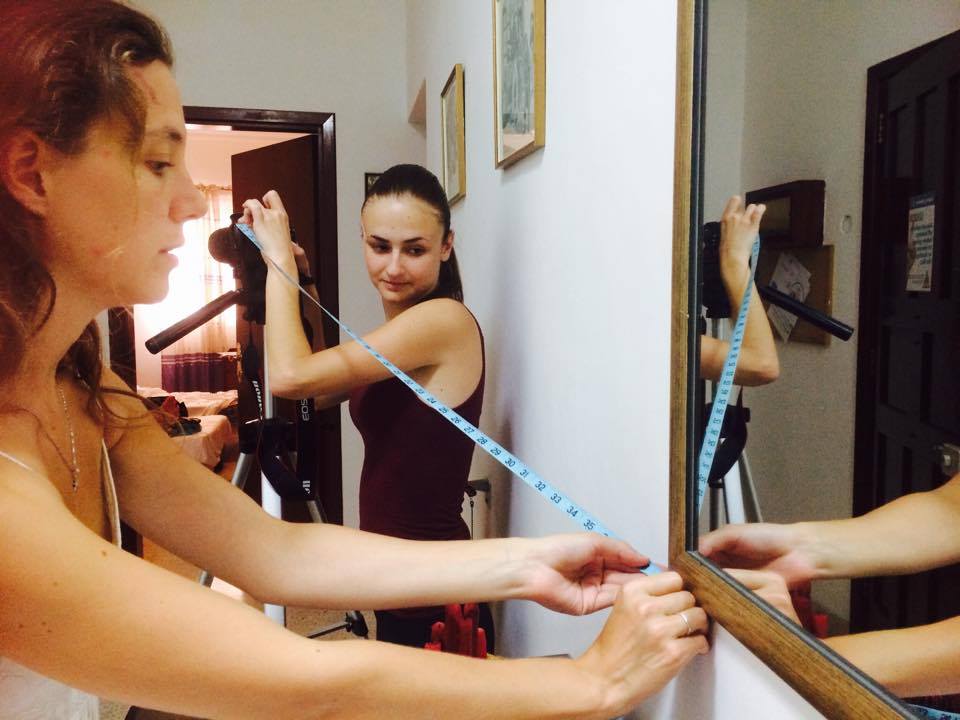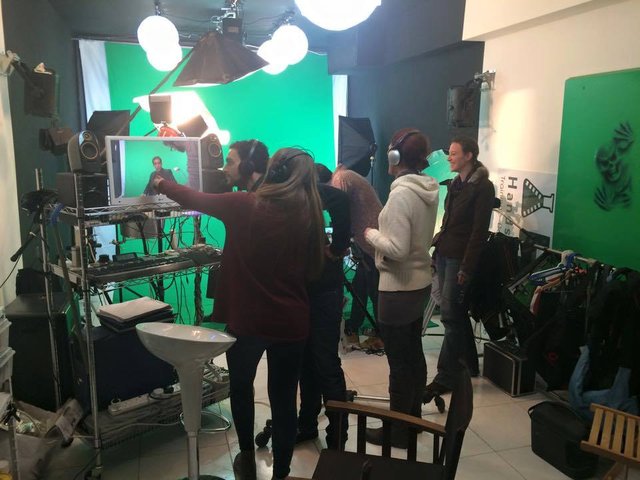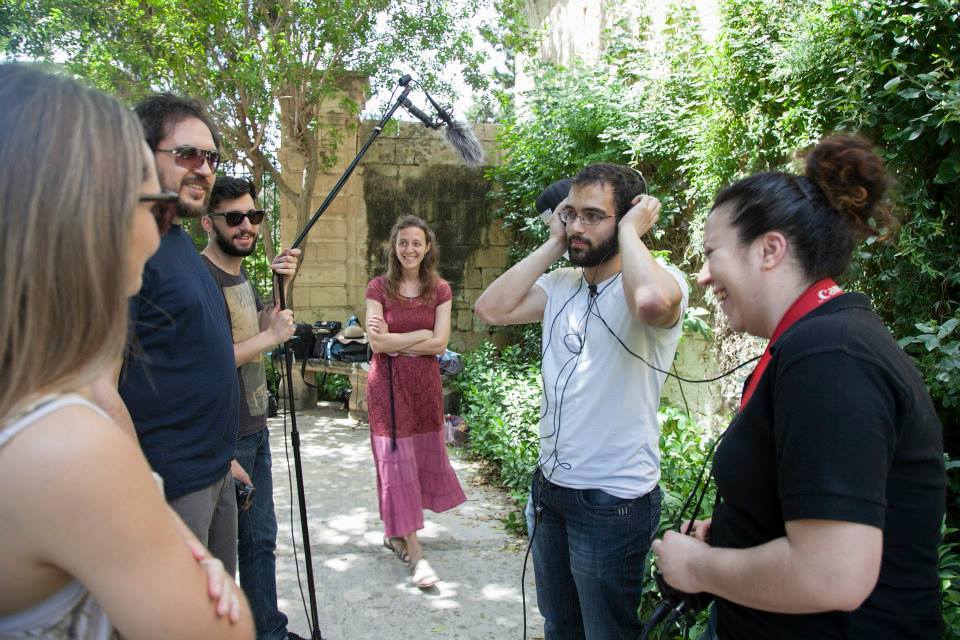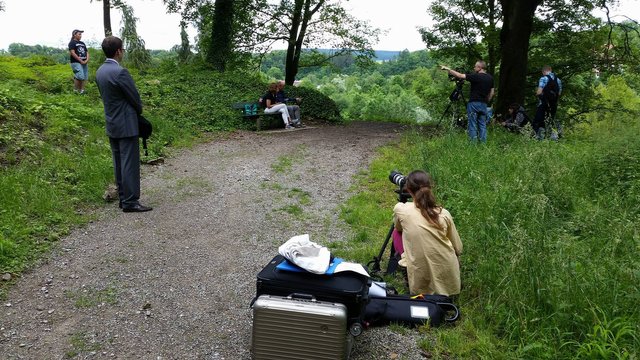How To Get a Film School Education for Free - Part Five - Make a Dozen Short Films
This is Part Five in a series. You can read Part One here, Part Two here, Part Three here, and Part Four here.
Film school, or no film school? That is the question. It's the question for many of us who have dreamed of making movies since we were kids, but haven't known where to start. It's a question for those of us who have been to film school and haven't found it particularly helpful. It's a question for those considering film school who don't really have the money for it and don't know if they'll be able to make a living from it afterwards, anyway.
Well, I've got good news for you. In the 21st century, you can get a film school education for practically free.
Because: The Internet.
I went to film school for a little while. I have often asked myself if it was really a useful experience or not. The truth is that, though I think film school gave me the initial push into the film world that I needed, ultimately I have learned far more just by reading articles, books, and blogs and by watching tutorials, interviews, and movies on my own.
So I decided to share with you some of the most useful wisdom I have found. And here's the good news: most of it's free.

Working on my friend Rodianne's film, Evelyn
Part Five - Make a Dozen Short Films
As Robert Rodriguez said,
"Shoot it, cut it, learn from it, put it in the can, go do another one. Because they do get better with time. The best thing I could have done was make a bunch of short movies first. That gave me a lot more experience and a lot more confidence."
Most of my articles in this series have been about all the great resources out there that would-be filmmakers can access for practically free in this wonderful age of information. I am so grateful for every one of them and how they have equipped me and given me courage during my filmmaking journey.
But there comes a point when you have to stop reading, watching tutorials, and listening to podcasts about filmmaking, and just go out and make a movie.
Because no matter how much you know about filmmaking, your not a filmmaker until you actually make a movie.

Working on my friend Mirko's film, Death Feed
A lot of people talk about making movies. They say, I have this great idea for a script, or I'm crowdfunding this feature project I want to do, etc., etc. And while it's fun to dream and discuss ideas, that's not filmmaking. Filmmaking is making films. It's closing your computer, gearing up, walking out the door, and shooting.
Walking the walk is a lot harder than talking the talk. It's difficult to pull together a film project. Believe me, I know. It took me three years to finish my student film. It's hard because there are so many steps and so many skills involved in bringing a film to completion. Often that means there are a lot of people involved, and if you're working on a zero budget, you depend heavily on people coming through for you, and if they don't, you get stuck. Again and again.
One thing you will realize is that making a good movie is a lot harder than you thought, and especially that it takes way more time than you ever could have imagined. And when you get to editing, you will realize how many mistakes you made during shooting, that you're missing a shot you really need, but that going back and shooting it again is too expensive or maybe impossible because a member of your cast moved to another city or something like that.
And after you finish your film, you will probably look at it and feel, this is so much less than I wanted it to be. After the hundreds of hours you invested in it, you will feel it kind of sucks.
But that's normal, because the first few do suck. And that's why it's important to go at it again and keep making movies.

Working on my student film, Jasmine
Here's a little advice that I wrote down by someone named Simon Jones, although I don't remember who that is anymore:
“With each project, aim to improve a single, specific aspect - whether that be the cinematography, the acting, the editing, the VFX, and so on. Make films fast, don’t worry about them not being perfect, and always make sure you finish a project before moving on. It’s the fastest way to learn and hone your skills.”
I am still at this stage in my filmmaking journey. I have directed 5 short films and worked on other films directed by friends and strangers. Sometimes I feel really discouraged because I seem to be moving backwards instead of forwards.
But the important thing is to keep going. And even if your film is disappointing to you, go ahead and put it up on YouTube or share it on Facebook. Start building a portfolio of your work and engaging with an audience. Then, hopefully, by the time you're ready to shoot a feature, you'll have a small fanbase behind you who will support you along the way and watch your movie when it comes out.

Working on my friend Katie's film, Bench Buddies
A word about money: Yes, I know it's hard. Even with how advanced and accessible filmmaking technology has become in recent years, there's always something you'll end up spending money on for every film, even if it's just food for your cast and crew. You can't really expect to be paid for making movies until you're good at it, but it's hard to spend all the time it takes to become good at it when you're not getting any money for your work. It's a Catch-22.
But if it's important enough to you, you will find a way. You will find the time, you will find the people, and you will find the money. Here's a little encouragement from the legendary Mark Duplass. And although times are changing so quickly that what worked for one filmmaker a few years ago may not work for us anymore, some things never change. Things like working hard, relentlessly pursuing our vision, and not giving up.
practice makes perfect as they said. your really have to feel it rather than think of it just as a theory . theory is best when it meets application

Oh this is excellent. Very, very excellent in fact <3
And as a fellow film maker (though of a completely different kind) I agree whole heartedly with everything you said. The only way to become good at pretty much anything is to go and DO it. Lots of it. Lots and lots and lots of it.
Among illustrators, designers and traditional animators there’s this saying that by now is intractable, no one knows who said it first anymore, but it goes something like this:
I think this really is true for every craft..
Really great article, and I think it’s really awesome you’re writing this series. Will be looking out for the next part <3
Thanks so much for your thoughtful comment! I'm enjoying following you as well!
Yaaaay~~ <3
I love Rodriguez ;-) And you also have great tips for all of us :) I like it!
Thanks, and thanks for the resteem, I really appreciate it! :D